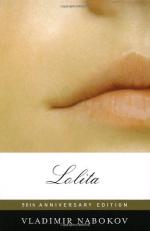|
This section contains 1,056 words (approx. 3 pages at 400 words per page) |

|
In this overview, Eisinger argues that Lolita is not so much about its plot as it is about art; he asserts that the novel's "primary if not its sole reality is language."
The apparent subject of Vladimir Nabokov's Lolita is the titillating perversion of a madman who virtually kills his wife in order to make captive and lasciviously possess her 12-year-old daughter; and when the child, who has in fact seduced him, escapes him, running off with another man, he apparently kills that man. This lurid tale would seem to invite either a sensational or a moral response. The problem Nabokov deliberately sets for himself, however, is to persuade the reader to transcend the erotic content and eschew moral judgment in order to perceive his novel as an artistic creation and not as a reflection or interpretation of reality. Lolita is not immoral or didactic, he has...
|
This section contains 1,056 words (approx. 3 pages at 400 words per page) |

|




